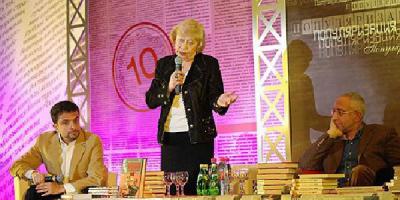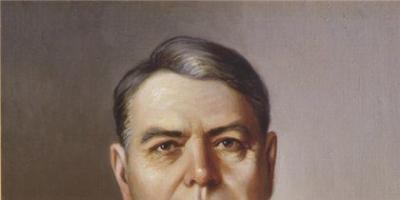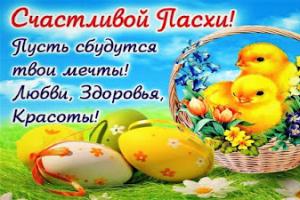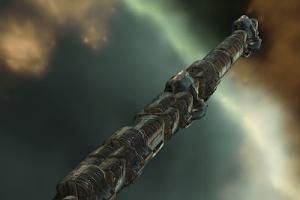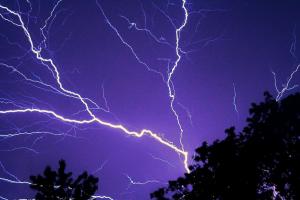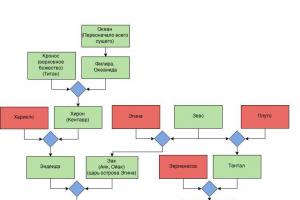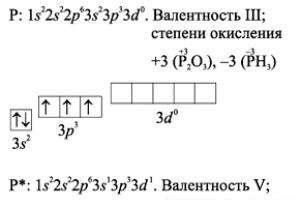Natalia Ivanovna Basovskaya- Soviet and Russian medievalist historian. Professor of the Russian State University for the Humanities, Doctor of Historical Sciences (1988).
Specialist in the history of the Middle Ages in Western Europe. Deals with problems of the history of international relations in Western Europe of the 12th-15th centuries, the political history of England and France, the history of historical science. Author of more than 150 works. At the Russian State University for the Humanities (MGIAI) since 1971. Gives a course of lectures “General History. Middle Ages. West”, special course “Leopard versus Lily...”. Honored Professor of the Russian State University for the Humanities (2006).
During her school years, her mentor was A. A. Svanidze. Graduated from the Faculty of History of Moscow State University (1963, with honors), majoring in foreign history, specialized in the department of history of the Middle Ages; postgraduate studies in the same department. She studied with Academician S. D. Skazkin and Professor E. V. Gutnova, who was the supervisor during the preparation of her dissertation. Candidate of Historical Sciences (1969), dissertation “English politics in Gascony at the end of the 13th - beginning of the 14th centuries.” Doctor of Historical Sciences (1988), dissertation “Anglo-French contradictions in the international relations of Western Europe in the second half of the 12th - mid-15th centuries.”
Since 1971, he has been a teacher at the Department of General History of the Moscow State Historical and Archival Institute (MGIAI), now the Historical and Archival Institute of the Russian State Humanitarian University (IAI RSUH). She organized at the department the student Club of the History of Antiquity and the Middle Ages (KIDIS), which held “courts of history” - theatrical discussions of the fates of famous historical characters. About some “courts of history” in 1991-1993. Documentary films were made. In the 1990s. She has repeatedly lectured on the history of Soviet historical science at US universities.
Currently the head of the Department of General History of the Historical and Archival Institute of the Russian State University for the Humanities (since 1988), also at the Russian State Humanitarian University the director of the educational and scientific Center for Visual Anthropology and Egohistory (CVEA) and co-director of the Russian-American Center for Biblical and Judaic Studies; Member of the editorial board of the yearbook "The Middle Ages". Chairman of the dissertation council of the Russian State University for the Humanities D.212.198.07, deputy chairman of the dissertation council of the Russian State University for the Humanities D.212.198.03. In 1988-2006, Vice-Rector for Academic Affairs of the Russian State University for the Humanities (MGIAI). As RFI characterizes her in 2012, she is “a leading teacher at the Russian State University for the Humanities, who stood at the origins of the university.”
Since the 1970s, he has appeared on television and radio as a historian.. In the 1970s, she hosted the radio program “Radio for a History Lesson” for two years.. Together with the editor-in-chief of the Ekho Moskvy radio station, Alexei Venediktov, she was the host of the historical program “Not So” on this radio station. Since 2006, also together with Venediktov, she has been the host of the historical program “Everything is So.” Journalistic articles in the magazines “Knowledge is Power” and “Rodina”, is a member of the editorial board of the latter.
Awarded the medal “In memory of the 850th anniversary of Moscow” (1997).
Husband - Vladimir Anatolyevich Roshal, also an employee of the Russian State University for the Humanities. Father - Kurenkov Ivan Fedorovich - WWII participant, colonel; mother - Kurenkova (Varsh) Maria Adamovna (b. 06.28.1909 - 2011) - agronomist, celebrated her 100th anniversary in 2009. Grandfather - Russified Polish nobleman Adam Franzevich Warsh, lawyer. Grandmother - Maria Alekseevna Varsh - also a noblewoman, graduated from the Catherine Institute of Noble Maidens.
Daughter from her first marriage - Evgenia (b. 1964) - Doctor of Philology.
Basovskaya Natalia Ivanovna is a name that evokes delight and respect from anyone who has listened to at least one of her lectures. But they are usually not limited to one. I would like to learn more and more about what Natalya Basovskaya can tell so interestingly. They call her jokingly, and maybe seriously, Scheherazade. This is how the editor-in-chief of the radio station “Echo of Moscow” A. Venediktov speaks of her for her endless “fairy tales”.
Some biographical information
A month before the start of the Second World War, on May 21, 1941, a daughter, Natalia, was born into a family of Russified Polish nobles (on her mother’s side). Her father, Kurenkov Ivan Fedorovich, went to the front, and one can only guess how her mother survived with an infant in her arms. However, Maria Adamovna’s health was ironclad. Despite all the hardships, she lived for one hundred and two years (1909-2011) and managed to rejoice at her daughter’s successes and take care of her granddaughter Evgenia, who was born in 1964 in her daughter’s first marriage and later became a philologist.
Studying at school and at Moscow University
In 1952-1960 A brilliant teacher, Ada Anatolyevna Svanidze, who was passionate about the history of the Middle Ages, worked in Moscow schools and would later teach at Moscow State University and Russian State University for the Humanities. It was her student who, like a sponge, absorbed knowledge, was Natalya Basovskaya. After school, she entered the history department of Moscow State University, from which she graduated with honors. Natalya Basovskaya continued her studies in graduate school and defended her thesis in 1969 on the topic of English politics in Gascony in the 13th-15th centuries. This work captivated the young historian so much that she studied Latin (she knew English perfectly) and read all the documentation on her own without a translator. Natalya Basovskaya turned over mountains of economic documents, and as a result, new information was included in the dissertation. It was she who became aware of how the British, who at that time owned Gascony, profited from the export and import of wines. They imposed a tax on the same barrel of wine twice - for export and for import - and thus clipped the coupons.
Teaching activities
Since 1971, Natalia Ivanovna Basovskaya taught at the Department of General History of the Historical and Archival Institute. But the young teacher was already collecting materials for her doctoral dissertation. At the same time, she organized a circle in which students conducted theatrical trials of famous historical characters.

In those same years, Natalia Ivanovna managed to broadcast a radio program about people who were given one, maximum two lines in school history textbooks for grades five to seven. The program was called “Radio for a History Lesson.” And then lectures appeared about Lao Tzu, Tamerlane, Richelieu and other historical figures. The result was portraits against the backdrop of history.
Defense of the thesis
This and besides, family and friends demanded time, which was not enough for the dissertation. Nevertheless, in 1988, a Doctor of Historical Sciences appears before us.

Natalia Ivanovna dedicated it to the Anglo-French contradictions of the 12th-15th centuries. At this time, the Hundred Years' War was going on. The most interesting personalities from both the English and French sides, little known to Russian listeners and readers, performed on the historical stage. It was at this time that the disparate people living in what is now France and England began to feel their unity. But the contradictions between them were so great that one of the French historians of those years wrote with all seriousness that they say that the English are not people at all: they have tails under their clothes, similar to those of monkeys. ended with a fracture caused by a little girl from Domremy, Joan of Arc. But its final completion is considered even though the peace treaty was never concluded.
Historical program of N. Basovskaya and A. Venediktov
Initially, two enthusiasts created the program “Everything is Wrong” on radio “Echo of Moscow”. In it, Natalia Ivanovna introduced listeners to the fascinating biographies of people whom she deeply studied when she was engaged in serious work on history: the historiography of the problems of the transition from antiquity to the Middle Ages or the problems of the Hundred Years War in modern historiography.

She easily and intelligibly, however, filling her stories with historical facts, talked about the people of the Ancient World and the Middle Ages. Why did eighteen-year-old Alexander the Great need the whole world? Why is the beautiful Alienor of Aquitaine considered the grandmother of Europe in the Middle Ages? Then, in 2006, the program changed its name, and it began to sound like “Everything is so.” But the questions she answered remained interesting. Is the real-life King Henry V similar to Shakespeare's character? Richard the Lionheart and Cicero, Leonardo da Vinci and Robin Hood have attracted attention throughout the centuries, and we can piece together their human image. But Natalia Ivanovna paints them vividly and vividly, as people of flesh and blood with their passions and mistakes.
TV channel "Culture"
Natalya Basovskaya’s lectures on television were a significant event. The whole country was able to see this sorceress of the word with her own eyes. It is not only the material that Natalia Ivanovna presents that is interesting, but also the way she does it. She enters the audience and happily greets young people: she is pleased with young faces who are interested in history. And people of all ages froze at the screens. Natalia Ivanovna is always smart and elegantly dressed. She loves and changes her jewelry often. What will we learn? About how the Middle Ages were born in smoke, blood and fire, how the great Rome perished and what a tragedy it was for its inhabitants. For them, the end of the world was coming in the literal sense of the word. After all, the Latins called Rome the eternal city, without doubting for a second that their foundations would last for centuries, if not millennia. Virgil, who created his poetic monument, was sure that Rome would always stand as long as the maiden ascended the Capitoline Hill and supported it. At the same time, Natalia Ivanovna quotes this poem in Latin, and then translates each line.

And it’s wonderful that we see the lecturer’s energetic gestures, which emphasize the significance of this or that phrase. From these lectures we learn about the life of Joan of Arc, about whom Natalia Ivanovna speaks with heartfelt admiration. One can only regret that the “Culture” TV channel has stopped broadcasting its “Academy” program and lectures can only be listened to from its archive, and new episodes are not released.
Literary activity
Natalya Basovskaya wrote articles based on lectures that not everyone could hear. The books they turned into do not sit on the shelves. These are publications such as "The Hundred Years' War. Leopard against the Lily", as well as the series "History in Stories" and "Man in the Mirror of History" and others.

A lot of them have already been published, and the reader looks forward to each issue, because he learns a lot of new things about what he heard, but somehow forgot. Their heroes are Queen Victoria, Karl Marx, Torquemada with his unrequited love, Marie Antoinette, Thomas More and many other historical figures.
Professor N.I. Basovskaya opened the world of history for listeners and readers from a completely different, unusual side. For this, she is grateful to her huge audience of admirers.
Here is a collection of the best, most unexpected stories about famous heroes and anti-heroes of world history from Natalia Basovskaya, whose programs have been hitting all the ratings on the Ekho Moskvy radio station for many years now. If you want to love history, this book is for you, if you already love it, even more so!...Incredible biographies of the most important women in history, told by Natalia Basovskaya. The great women who changed our world loved and died, suffered and rejoiced like ordinary people. All their secrets are revealed to the reader by the famous historian. Who was more cruel than Tamerlane? Who did Nefertiti really love? Why did old China end under Empress Ci Xi? All the answers are in this book.The life stories of all the most interesting and prominent historical figures, told by the famous historian Natalia Basovskaya, are collected in this book. Heroes, villains, femme fatales, rulers of half the world and rebels loved, hated, fought, lost and won many years ago, but their fates still concern us. All their secrets are revealed to the reader by the famous historian.The series of lectures “Women in History” is dedicated to outstanding women of different eras and different countries: Hatshepsut, Nefertiti, Cleopatra, Alienor of Aquitaine, Joan of Arc, Jadwiga, Catherine de Medici, Cixi, Mary Tudor, Mary Stuart, Marie Antoinette, Victoria, who played significant role in world history.Recording a program from the "ACADEMIA" cycle. The largest Russian medievalist historian, Doctor of Historical Sciences, Professor Natalia Ivanovna Basovskaya talks about the origins of the Middle Ages, about how a society, culture, and civilization could have appeared that no one planned, no one predicted.“Legends and Myths of Ancient Greece” as presented by the famous researcher of antiquity N.A. Kuna have long become a classic, without which it is difficult to imagine the childhood or youth of an educated person.This publication will give you a unique opportunity to get acquainted with the works of N.A. Kuhn in the form in which they were published in 1914.Natalia Basovskaya's new book introduces the reader to the brightest heroes of human history. Was Emperor Caligula the depraved villain we know from legend? Did Queen Margot really keep her lovers' hearts under her skirts? Why did Emperor Charles V, ruler of an empire in which the sun never set, himself renounce power?Here is a collection of the best, most unexpected stories about famous heroes and anti-heroes of world history from Natalia Basovskaya, whose programs have been hitting all the ratings on the Ekho Moskvy radio station for many years now. If you want to love history, this book is for you, if you already love it, even more so!Incredible biographies of the most important figures in history, told by Natalia Basovskaya. The men and women who changed our world loved and died, suffered and rejoiced like ordinary people. All their secrets are revealed to the reader by the famous historian.
Who was more cruel than Tamerlane? Who did Nefertiti really love? Why did Benjamin Franklin's fiancée laugh at him? The answers to these and many other questions are in this amazing book.The life stories of the most interesting and prominent historical figures of the Middle Ages, told by the famous historian Natalia Basovskaya, are collected in this book. Heroes, villains, femme fatales, rulers of half the world and rebels loved, hated, fought, lost and won many years ago, but their fates still concern us. All their secrets are revealed to the reader by the famous historian. Department of Media Speech
Job title
Head of DepartmentAcademic degree
Doctor of Philological Sciences, Associate ProfessorBiographical information
At the Russian State University for the Humanities she led special seminars: “The power of language: the possibilities and dangers of speech influence”, dedicated to the nature of speech influence and designed to develop students’ skills in resisting verbal manipulation; “Fundamentals of Scientific Rhetoric”, the purpose of which is to prepare students for such a form of professional activity as verbal self-presentation. She defended her doctoral dissertation on the topic “The concept of “purity of language” in Soviet newspaper propaganda” (2011). He has experience in journalistic and editorial work at the Publishing House of Political Literature and the editorial office of the Rodina magazine. She taught at the Faculty of Philology of the Moscow City Pedagogical University. She taught Russian language and speech culture at the Humanitarian College of the Russian State University for the Humanities, and Russian language and literature in lyceum classes at the Russian State University for the Humanities. Author of textbooks on Russian literature for grades 8-11 in humanities schools.Scientific and pedagogical activities
He teaches courses (according to the author’s programs): “Modern Russian Language” (the course gives students an idea of the nature, functions, structure, trends in the development of the language), “Stylists and literary editing” (the course helps to increase the efficiency of using language means in various communicative situations), “Practical course of the Russian language” (the course is aimed at improving literacy and expanding the active vocabulary of students). She teaches in the master's program at the Faculty of Journalism: courses “Language and Style of the Media”, “Modern Media Text”, “Editing Scientific and Journalistic Text”, “Theory of Journalism”.Area of scientific interests and scope of scientific activity
Media speech, methods of speech influence, linguoecology, history of Soviet lexicography.Publications
Author of more than 20 works. Main publications:- Changes in the use of words with the stem “people” as an indicator of the evolution of Russian social consciousness (based on the literary-critical publications of the magazine “New World” 1952-1992) // Bulletin of Moscow University. Series "Journalism". – 1995. No. 2-3. pp. 20-27.
- Russian literature in artistic comprehension: a textbook on literature for 8th grade. / E. N. Basovskaya. - M.: The Center is Humanitarian. Education, 1996. Russian literature of the second half of the nineteenth century: textbook. allowance for 10th grade. avg. school - M. : AST: Olimp, 1998. - 520 p.
- Decapitation through titling // Russian speech. – 2003. - No. 4. – P. 56-62.
- From clerical to official business style // Directory of the secretary and office manager. – 2003. – No. 4. – P. 78-82.
- Stylistics and literary editing. Series “I'm going to class...”. – M., 2005. – 248 p.
- Search for the enemy: “Literary newspaper” about the Russian language (Analytical review of materials from 1929-1940) // Bulletin of the Russian State University for the Humanities. – 2007. – No. 9. Series “Journalism. Literary criticism". – pp. 99-113.
- The problem of “purity of language” on the pages of the “Literary Gazette” during the Thaw years // Bulletin of the Russian State University for the Humanities. – 2008. – No. 11. Series “Journalism. Literary criticism". – pp. 160-170.
- Phraseology of Victory // Stereotypes in language, communication and culture. – M.: Russian State University for the Humanities, 2009. pp. 336-347.
- Without winners and losers (the struggle for the “purity of language” on the pages of the Literary Gazette in the 1970s-1980s) Journalism and the culture of Russian speech. 2010. No. 1. – P. 27-38.
- Issues of speech culture in the Soviet press (second half of the 1940s - early 1950s) Bulletin of the Russian State University for the Humanities. Journalism Series. Literary criticism. No. 6. 2011. – P. 113-122.
| Natalia Ivanovna Basovskaya | |
Natalia Ivanovna Basovskaya |
|
| Date of Birth: | |
|---|---|
| A country: |
Russian Federation |
| Scientific field: |
history of the Middle Ages of Western Europe, history of international relations in Western Europe of the 12th–15th centuries, political history of England and France, history of historical science. |
| Place of work: | |
| Academic degree: | |
| Academic title: | |
| Scientific adviser: |
Evgenia Vladimirovna Gutnova |
| Known as: |
largest Russian specialist on the history of the Hundred Years War, author of a series of popular science programs on television and radio “Echo of Moscow” |
| Awards and prizes |
|
| Website: | |
Natalia Ivanovna Basovskaya(born May 21, Moscow) - Soviet and Russian medievalist historian, Doctor of Historical Sciences, professor.
Specialist in the history of the Middle Ages in Western Europe. Deals with problems of the history of international relations in Western Europe of the 12th-15th centuries, the political history of England and France, the history of historical science. At the Russian State University for the Humanities (MGIAI) since 1971. Gives a course of lectures “General History. Middle Ages. West”, special course “Leopard versus Lily...”.
She was awarded the medal “In Memory of the 850th Anniversary of Moscow” (1997), and has the honorary title “Emerited Professor of the Russian State Humanitarian University” (2006). Author of more than 150 works.
Education and academic degrees
She graduated from the Faculty of History of Moscow State University (with honors), specialized in the department of history of the Middle Ages. She studied with academician Sergei Danilovich Skazkin and professor Evgenia Vladimirovna Gutnova, who was the supervisor during the preparation of her dissertation. Candidate of Historical Sciences (dissertation topic: “English politics in Gascony at the end of the 13th - beginning of the 14th centuries”). Doctor of Historical Sciences (dissertation topic: “Anglo-French contradictions in the international relations of Western Europe in the second half of the 12th - mid-15th centuries”). Professor (). Honored Professor of the Russian State University for the Humanities ().
Scientific and pedagogical activities
S - Lecturer at the Department of General History of the Moscow State Historical and Archival Institute (MGIAI; then at the Historical and Archival Institute of the Russian State Humanitarian University - IAI RSUH). Specialist in the history of the Middle Ages in Western Europe. Deals with problems of the history of international relations in Western Europe of the 12th-15th centuries, the political history of England and France, the history of historical science. Gives a course of lectures “General History. Middle Ages. West”, special course “Leopard versus Lily...”. In the 1970s, she organized at the department KIDIS (student circle of the history of antiquity and the Middle Ages), which organized “courts of history” - theatrical discussions of the fate of famous historical characters. About some “courts of history” in

